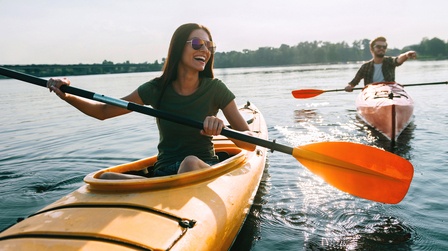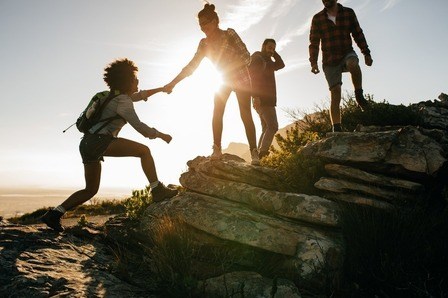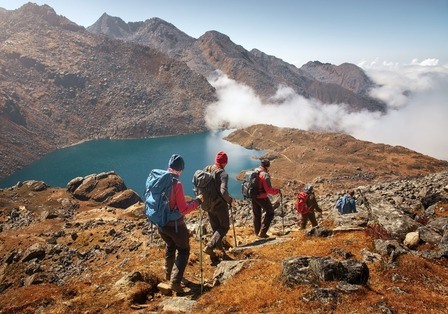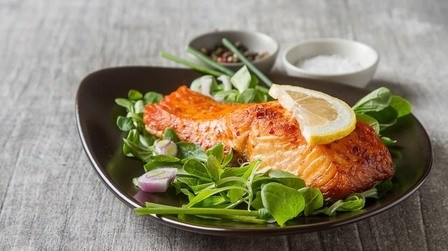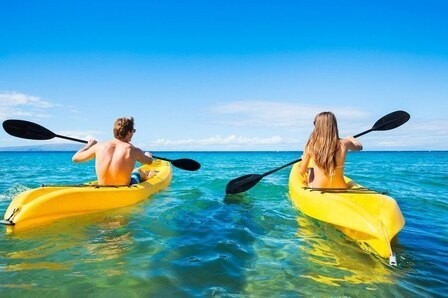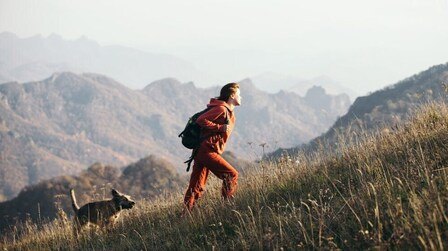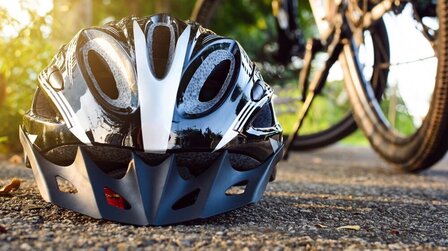A few words about this article: My 7-day backpacking meal plan is for a long day trip that you're 100% self-sufficient. It will be perfect for isolated trails where there is no restaurant and you've got no chance to grab lunch or dinner somewhere along the way.
When making a meal plan for a long-day backpacking trip, the two most important things are 1) ensuring enough energy intake and 2) light packing weight.
An Overview Of My 7-Day Backpacking Meal Plan
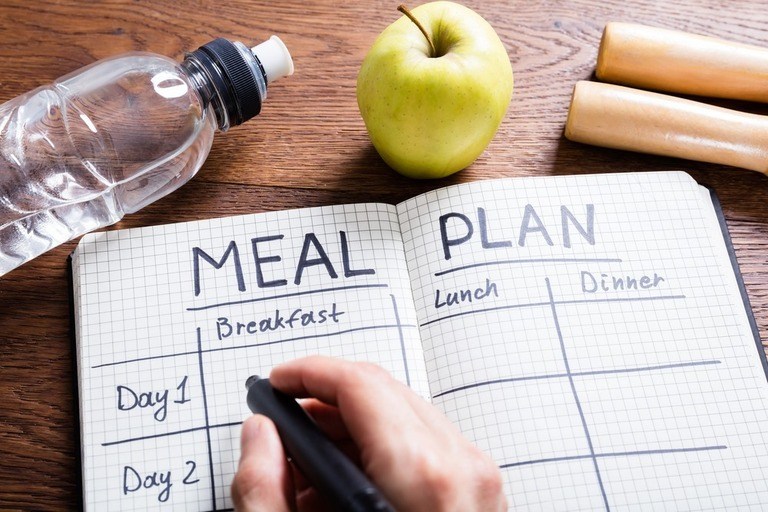
I won’t eat a bunch in a meal but will split into smaller bits to have during the day. According to my experience, a hearty meal will make you feel sleepy and slow you down, which impacts the planned pace of your backpacking trip.
Not saying that a sleepy feeling is pronto gets you in dangerous situations or can't completely enjoy the trip.
That's the reason this meal plan includes three meals and four snacks.
Now, let me show you the food that I brought:
Foods I Pack For A 7-Day Backpacking Trip
Food Name | Total Quantity | Purpose | Calories Count | |
Breakfast | Instant oatmeal | 7 packets of 3.5 ounces | For 7 breakfasts | 300-350 calories/serving |
Whey protein | 7 scoops | |||
Lunch | Peanut butter | 1 container of 1 pound | For 7 lunches | 750-850 calories/serving |
Tortillas | 2 packs of 17.5 ounces | |||
Raspberry jam | 1 container of 10 ounces | |||
Dinner | Refried beans | 6 packets of 7.25 ounces | For 3 dinners | 1,000-1,200 calories/serving |
Cheese slice | 6-12 slices | |||
Beef stew | 4 packets of 1.5 ounces | For 2 dinners | 1,000-1,200 calories/serving | |
Garlic roasted smashed potatoes | 4 packets of 2 ounces | |||
Pepperoni pizza | 4 pieces | For 2 dinners | 1,420-1,550 calories/serving | |
Pitta bread | 4 slices | |||
Pizza sauce | 1 packet | |||
Cheese stick | 4 sticks | |||
Dark sea salt chocolate (the type that’s hard to melt) | 1 packet | For 7 desserts in the evening | ~150 calories/3 squares/serving | |
Snacks | Pre-shelled roasted and salted pistachios/hazelnuts/seasoned and salted macadamia nuts | 7 packets of 3 ounces | For 7 snacks | 580 – 600 calories/packet/serving |
Dried fruits | 7 packets of 6 ounces | For 7 snacks | 610 calories/packet/serving | |
Jerky | 1 packages of 2 pounds | For 7 snacks | 280 calories/2 packets/serving | |
Energy bar | 7 bars | For 7 snacks | 200-300 calories/bar/serving | |
Optional | Instant coffee | 7-10 packets | Help you get up and go | ~0 |
Small shell pasta | 6 ounces (for 1 dinners) | For one backup meal | 650 calories/serving | |
Parmesan cheese | 1 ounce (for 1 dinners) | |||
Peach Mango/raspberry tea packet | 7 packets | For moral boost at each dinner | ~0 | |
Ramen pack | 2-3 packs | For one backup meal Or, for when you get sick of other snacks | 371 calories/pack/serving |

Important notes:
Those are all the foods I brought for a 7-day 100% self-sufficient backpacking trip, which totally weighs 14 pounds. On average, I consume 2 pounds of food, equivalent to 3,800-4,000 calories – which is enough for my body weight (155 pounds).
If you have the same body weight as me, just follow the quantity that I listed above.
In case that you don’t, it is important to adjust the quantity of each food to meet your calorie requirements. To know how many calories intake per backpacking day, keep reading:
How To Estimate The Calories Your Body Requires Per Backpacking Day?
According to Backpacker Magazine, a backpacker needs 25-30 calories intake per 1 pound of bodyweight, for 8-hour backpacking in a day with a heavy pack.

For example, my body weight is 155 pounds, which means I need to consume at least 155*25 = 3,875 calories per backpacking day.
A trick to easily adjust your diet is to increase/decrease the quantity of snacks while remaining the main meals.
How I Pack My Food
With Pre-Packaged Items
Foods like instant oatmeal, energy bars, and instant coffee are pre-packaged, so you just need to take enough number as listed above.

For easy access, keep all of these packets in a clear Ziploc plastic bags.
With Items That Aren’t Pre-Packaged
For those items that need to be extracted from a large box or bag, such as whey protein, nuts, and pasta, there are two ways of packing:
- Extract and keep the food in one big resealable plastic bag

- Extract and keep the food in separate resealable small plastic bags; one bag equals one serving.

I prefer the second way for two big reasons: 1) I can easily track the total calories intake and 2) it avoids having too much in the first few days, which results in nothing left to eat in the last days.
Compared to the way of keeping all nuts in one big bag, this one doesn’t bulk up your packing noticeably.
For example, I keep each scoop of whey protein separately in a small Ziploc plastic bag. Or, you can buy whey protein packets, like this:

With Jam And Peanut Butter
Although these two items are pre-packaged in plastic or glass containers, I’d like to lighten the weight by choosing nut butter packets instead.

Glass containers are, on the other hand, not ideal for backpacking because of their vulnerability and cumbersomeness.
With jam, I put some in those silicone bottles that are usually used for shampoo, so you can squeeze it right onto your sandwiches for quick and mess-free serving.

Bonus tricks:
- I recommend carrying whey protein of different flavors to avoid the boredom of having the same breakfast during straight seven days. Same with energy bars.
- Carry a mix of different nuts for more appetite and for providing fuller nutrients.
- With the Ziploc bags, label each of them with big letter size for easy access. Choose the transparent type for extra accessibility.
- Always carry some extra foods for backup meals. Focus on those lightweight, easy-to-pack types of foods that give you tons of calories.
Conclusion
That’s all for this article. I hope that my 7-day backpacking meal plan was helpful to you in your upcoming adventurers. If you have got any other tricks to share with me and other readers, please go ahead. I’d like to hear from you as much as possible!
Finally, thanks for reading!

